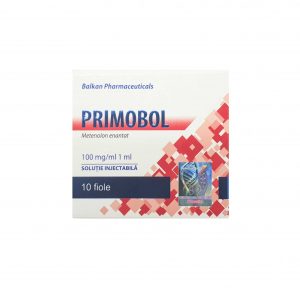Total: $60.00
Causes of prostate enlargement in men
Good day, dear readers! What are the causes of prostate enlargement in men? This question is often asked, especially considering that by age 60, about 50 percent of men have an enlarged prostate, and by age 85 – about 90 percent. However, despite the fact that an enlarged prostate (benign prostatic hyperplasia, BPH) is so common in men, the cause of its growth is still not completely clear. The old name for BPH is prostate adenoma .
The prostate goes through two main periods of growth. The first occurs during early puberty, when iron doubles in size. At this point, the prostate is usually the size of a walnut. The second period of growth begins at about 25 years and continues throughout the rest of life. The end result can be a prostate the size of an apricot or even a lemon. In some men, this prostate enlargement is much smaller than in others.
What are the causes of prostate enlargement in men?
Effect of certain hormones
Experts suggested several theories about why the prostate of a man tends to grow with age. According to one of them – an increase in the level of the hormone dihydrotestosterone (DHT) leads to an increase in the size of the gland. Men with low levels of DHT do not have an enlarged prostate.
Another hormone, named as a possible culprit for prostate growth, is the female hormone estrogen (estradiol). As a man ages, testosterone levels in the blood tend to decrease, which increases the percentage of estrogen. Estrogen levels have been shown to be an indicator of an enlarged prostate.
Other factors affecting prostate enlargement
Here are some other factors that have also been shown to play a role in increasing the size of the prostate gland:
- Products that can cause inflammation . Certain foods can cause an inflammatory reaction in the body. These include red meat, processed or peeled foods, sweet foods, eggs, poultry, alcohol, and dairy products. If possible, avoid or limit the consumption of these products, especially if you already have an enlarged prostate.
- Overweight / obesity . Overweight, especially around the abdomen, is a risk factor for prostate enlargement. One of the reasons whyoverweightorobesitycan lead to prostate growth is that testosterone levels tend to decrease in obese men, and the accompanying increase in estradiol can then increase DHT activity.
- The presence of diabetes . The characteristics of diabetes, including insulin resistance, obesity and high sugar levels, increase progression of prostate growth. In addition, diabetes is associated with damage to the blood vessels, which can also contribute to an increase in the size of the prostate gland.
- High levels of “bad” cholesterol (low density lipoprotein, LDL) . Some studies show that men with diabetes and high levels of LDL are more likely to have an enlarged prostate than men with normal levels of “bad” cholesterol. However, not all studies have shown a link between an enlarged prostate gland and high levels of LDL cholesterol.
- Metabolic syndrome . It has been shown that men with an enlarged prostate suffer from metabolic syndrome significantly more often. Metabolic syndromeis a disorder characterized by obesity, insulin resistance or glucose intolerance, high levels of C-reactive protein in the blood (a sign of inflammation), obesity and elevated levels of fibrinogen or plasminogen activator inhibitor in the bloodstream.
- Atherosclerosis . In atherosclerosis, when the walls of the arteries become thick and hard with bloom, there may also be an increased risk of developing an enlarged prostate.
- Lack of exercise . A sedentary lifestyle is supposed to increase the prostate, becauseexercisehelps reduce inflammation, the risk of developing type 2 diabetes and obesity. In addition, studies have shown that exercise can significantly reduce nocturia (frequent urge to urinate at night) compared with no workout.
- Weak immune system . The presence of a weakened immune system, often caused by poor nutrition, lack of physical activity, insufficient sleep, uncontrolled stress and other lifestyle factors, may increase the risk of an enlarged prostate.
What is the relationship between prostate-specific antigen (PSA) levels and an enlarged prostate?
Another question that some men ask is whether there is a relationship between prostate-specific antigen (PSA) levels and an enlarged prostate. Men with BPH may have elevated levels of PSA, a substance often associated with prostate cancer. One of the reasons for the high PSA level in men with BPH is that more prostate cells cause an increase in PSA. There are natural ways to reduce PSA.
The most important things to remember are that in order to live with an enlarged prostate gland, you need to eat healthy foods, exercise regularly, maintain a healthy weight, treat any symptoms of an enlarged prostate by natural methods, remember to practice good hygiene and when problems arise with the prostate gland. gland contact a doctor.
So, in this article we looked at the possible causes of prostate enlargement in men and some ways to improve the condition of the gland. On my website you can read articles that deal with the treatment of an enlarged prostate at home , as well as products and vitamins to strengthen it.



